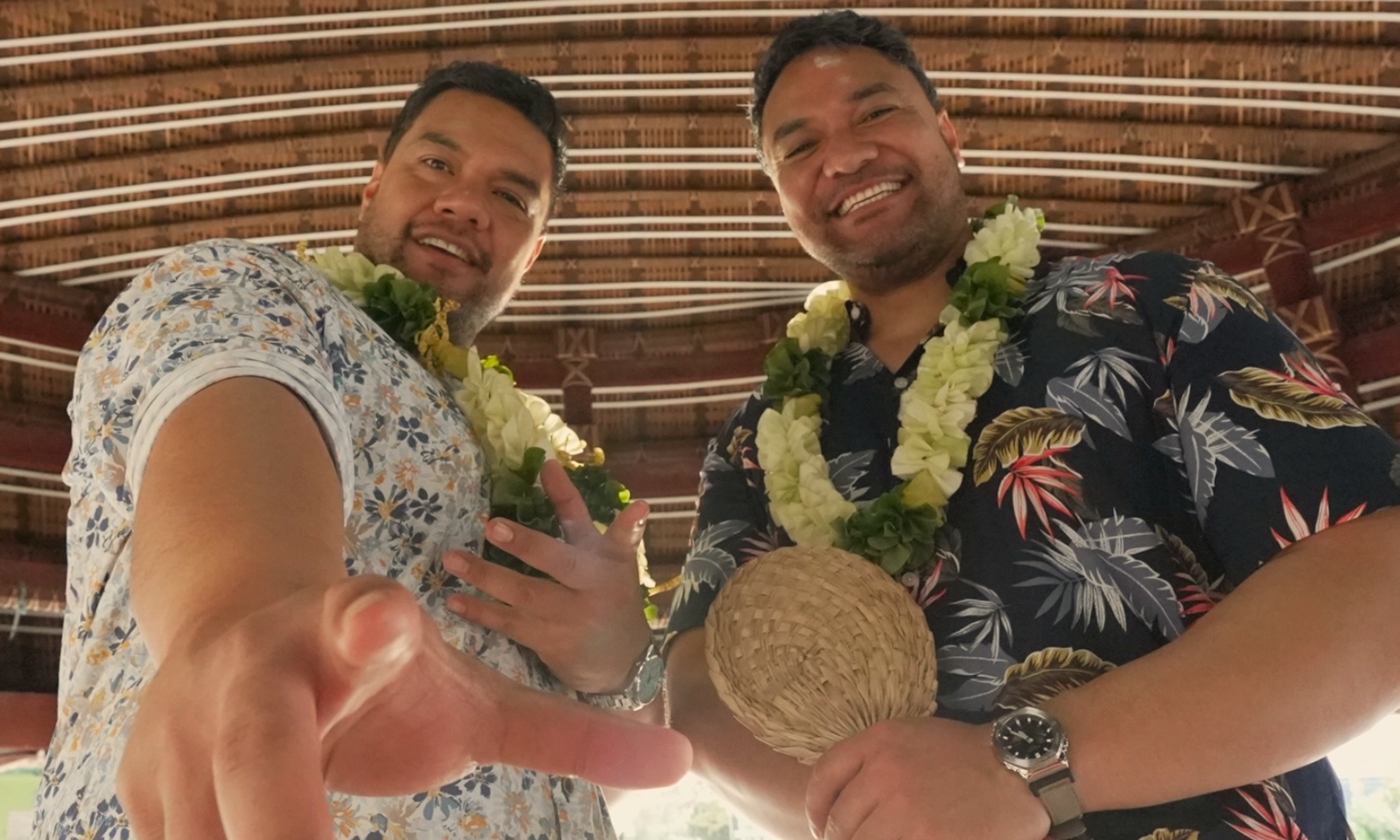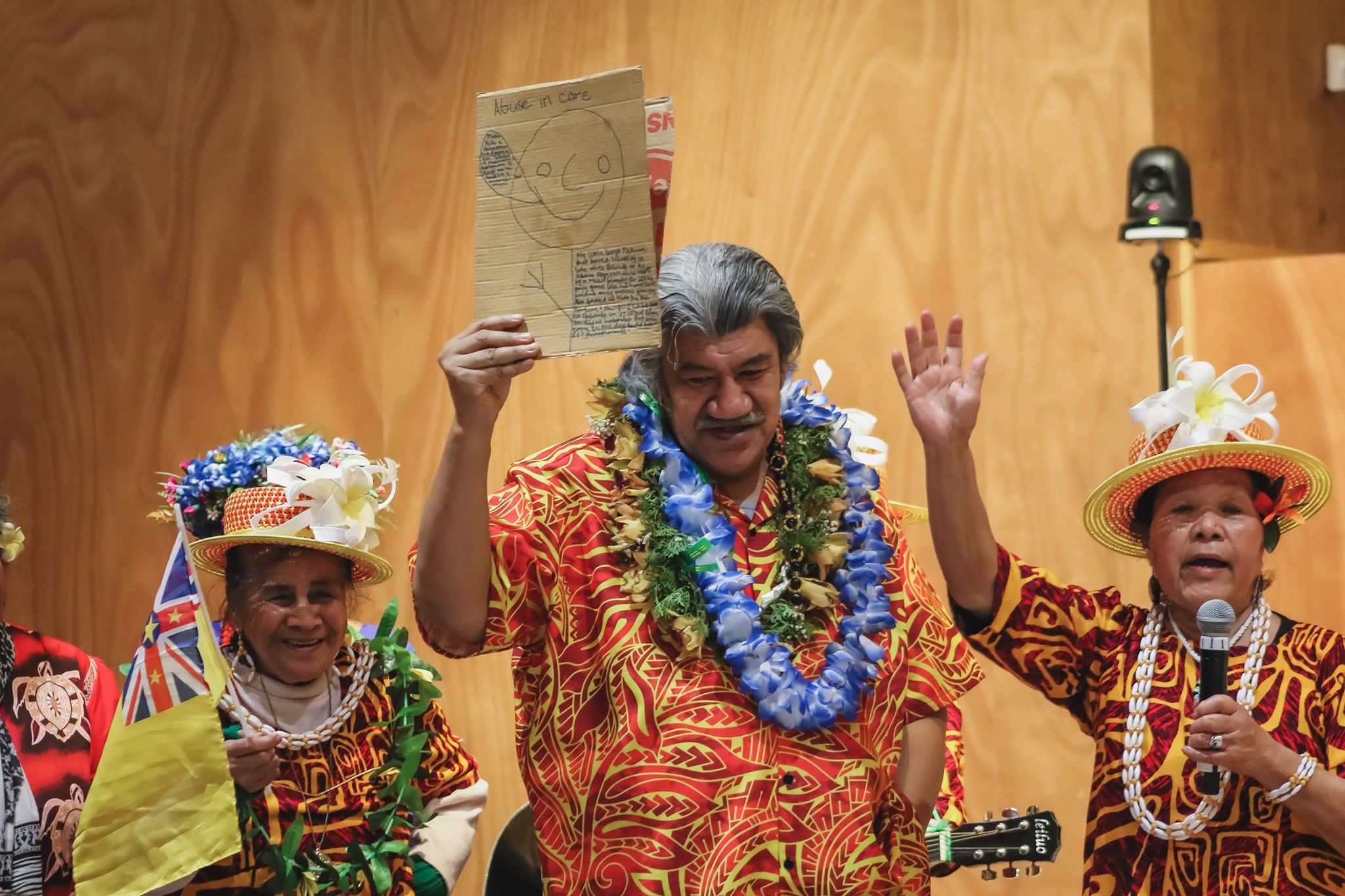

Fine mats are presented at the Abuse inquiry's Pacific hearing, July 2021.
Supplied
Abuse Inquiry: Hopes for redress and intergenerational healing
Sāmoan academic Tamasailau Suaalii-Sauni hopes the Abuse In Care final report will shift societal attitudes and practices in addressing the harm suffered by children and young people.


The Sāmoan Tenor named Pati who turned disadvantage into an operatic destiny

Naval officers face charges over sinking of HMNZS Manawanui

‘One of our most trusted leaders’: Tributes flow for a beloved rangatira

Argentina eyes Pacific Islands Forum dialogue partnership as NZ says nations must decide

The Sāmoan Tenor named Pati who turned disadvantage into an operatic destiny

Naval officers face charges over sinking of HMNZS Manawanui

‘One of our most trusted leaders’: Tributes flow for a beloved rangatira
A historic report is expected to show the impact of children who were abused while in state care, along with the ongoing impact on families and communities.
The Royal Commission of Inquiry into Abuse in Care's final report will be tabled in Parliament on Wednesday, called Whanaketia - through the pain and trauma, from darkness to light.
It compiles the accounts of children who suffered abuse while in state or religious care between 1950 and 1999, along with recommendations for the future.
Auckland University associate professor in criminology Tamasailau Suaalii-Sauni says the report includes the experiences of Māori and Pacific children, who suffered further harm when in state and faith-based care.
“We have a saying in Samoan, A malu i fale, 'e malu fo'i i fafo, which means that if you are safe at home, you will be safe elsewhere.
“When a child or young person gets taken into state care it means that something has happened in the home, in the family context. When they go into state care, or any care system for that matter, we need to be able to trust that the care system will be able to give them the safety, love and support that they need to stay safe, to heal, to do well as young people, children and families in need of support.
“So we need to put the support mechanisms around [them] to achieve that. That is what we should expect from the state, to provide those mechanisms for safety, wellbeing and care.
“It doesn't necessarily have to be the state who provides that care, and this is where faith-based care has stepped in, it could be our communities, it could be our churches, it could be our extended families, but we need to all work in partnership together to make that safe and caring environment for those children and young people happen.”
Pacific connections
The Waitangi Tribunal estimates that 80-90 per cent of Mongrel Mob and Black Power members were children in the state care system, during a time which included a boom of Pacific labour workers to Aotearoa, the rise of the Polynesian Panthers and the Dawn Raids.
Speaking to William Terite on Pacific Mornings, Suaalii-Sauni said the impact of colonisation has been strongly felt by Māori and Pacific people.
“There is a very clear and distinct link for indigenous people between incarceration, between being part of the ward of state population, and colonisation.
“For Pacific peoples, we have our own experience of colonisation, but being of a community and culture that believes very much in a value system that runs against the grain of settler, colonial, contemporary liberal capitalist systems, you’re going to have pushback.”
The Inquiry included the story of Niuean man Hakeagapuletama Halo, whose struggles with the English language and a learning disability put him into Lake Alice mental hospital, where he was subjected to electroconvulsive shock therapy.

Hake Halo at the Abuse Inquiry's Pacific hearing, sent pictures to his family describing how he was abused with electric shocks. Photo/Royal Commission
Suaalii-Sauni said mana-enhancing, intergenerational conversations are needed to ensure trauma is named and dealt with, so the cycle is broken.
“As generations come, they experience an environment, social environment, political environment, economic environment, that's not exactly the same as each other, and those kinds of environments have impact in terms of the way in which we deal with harm, harm that's been caused to us and the social stigma, silencing, and shame that comes with it.
“Particularly with our Pacific communities, shame is a multi-layered thing, and it’s very tricky to deal with, and so we need to have intergenerational conversations that can be healing, that can be empowering to help talk through this.”
Inquiry commissioners lay challenge
In a joint statement, the Inquiry’s commissioners acknowledged those who took part.
“We recognise it has been a long and difficult journey, and the impacts of abuse and neglect continue to harm you. We pay respect, too, to the many people who have died waiting for action,” said Judge Coral Shaw, Anaru Erueti and Paul Gibson.
“Meaningful action must start right now. For too long our nation has swept abuse and neglect in care by State and faith-based institutions under the carpet. That’s not good enough. It must stop. Institutions and senior leaders must be held to account. Wrongs must be righted, care must be made safe, whānau and communities must be invested in and empowered to provide care,” said the Commissioners
The Inquiry was established in 2018, and was extended after a flood of submissions, including 133 days of public hearings, and a dedicated Pacific hearing in Māngere in July 2021.
Inquiry chair Coral Shaw said the extension acknowledged the enormity of the inquiry and importance of getting it right.
Suaalii-Sauni said the final report is an opportunity for those making decisions that directly affect the safety and wellbeing of our children and young people to be held accountable.
“It’s a chance for the government to review its policies around state care, and to ensure that our children and young people who experience harm are given the opportunity to call those responsible for their harm to account and to have appropriate services addressing historical, contemporary and intergenerational harm be properly resourced.
“The greatest hope is that we get a shift in public attitudes, and we get a shift, in particular, in the attitudes of those who have direct responsibility for our children and for our young people.”
Watch the full interview on Pacific Mornings with Tamasailau Suaalii-Sauni: